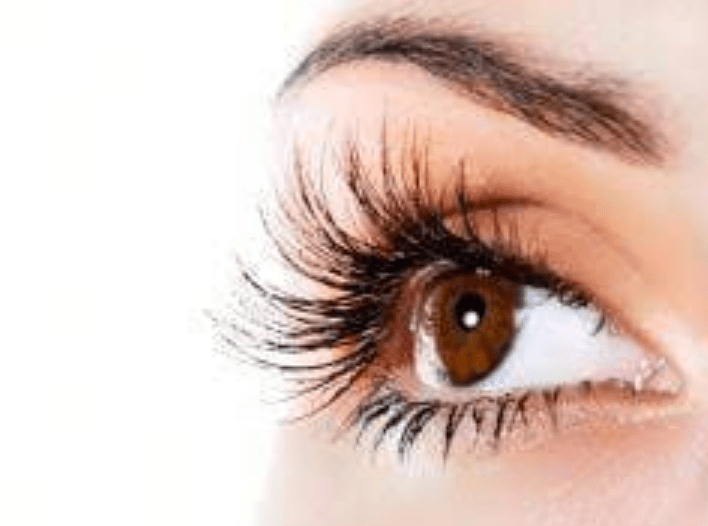Your eyes let you see and appreciate the world. Many neglect their eye health and fail to defend their vision.
When did you last consider eye health? Like many, it’s been a while. Maintaining vision and quality of life requires eye care. Eyes are your portal to the world! We’ll discuss Essential Tips for Maintaining Healthy Eyes. We’ll cover everything from common eye issues to proper eye care. This post covers preventing eye issues and prioritizing eye health. Sit back, rest, and prepare to see the world differently with these eye care tips.

The Importance of Eye Care
Your eyes are essential. Not only do they allow you to see the world around you, But they are vital to your health and well-being. Eye care is vital for several reasons:
-
Better Vision
Eye care improves sight.
Caring for your eyes can prevent vision issues and keep clear, sharp vision for years.
-
Reduced Risk of Eye Diseases
Glaucoma and cataracts can permanently damage vision if left unchecked. By prioritizing your eye health, you can catch these conditions early and get the treatment you need to protect your vision.
-
Improved Quality of Life
Vision is needed for driving, reading, and savoring the world. You can stay independent and live better by taking care of your eyes. Despite its importance, research has shown that many people neglect their eye health. By prioritizing eye care, you can enjoy these benefits and more. So let’s dive into some tips for proper eye care!
Common Eye Problems and How to Avoid Them
Eye care can avoid or treat many eye issues. Here are a few of the most common eye problems and tips for avoiding them:
-
Myopia (Nearsightedness)
Myopia is when distant objects appear blurry while close objects remain clear. It’s a common illness that affects a lot of people all over the world. Even though genes often cause myopia, there are a few things you can do to reduce it so that you will not get it. For example, kids who spend more time outside are less likely to get nearsighted. Additionally, taking breaks when using screens and practicing posture can help reduce eyestrain, a risk factor for myopia.
-
Cataracts
Cataracts are a clouding of the eye’s lens, which can cause blurry vision and other vision problems. Even though cataracts are a standard part of getting older, there are things you can do to lower your chances of getting them. For example, wearing sunglasses and a hat when you’re outside can protect your eyes from UV rays, which are a risk factor for cataracts. You can also lower your risk by not smoking and eating well.
-
Dry Eyes
Dry eyes occur when your eyes don’t produce enough or poor-quality tears, which can cause discomfort and vision problems. Dry eyes are familiar to aging folks and screen users. To avoid dry eyes, take breaks when using screens, use a humidifier in dry environments, and stay hydrated by drinking plenty of water.
-
Syndrome for Computer Vision
When you stare at a computer screen for too long, you develop Computer Eye Sickness. Headaches, neck, and shoulder pain, and eyestrain are symptoms. To avoid computer vision syndrome, take breaks when using screens. Adjust your screen’s brightness and contrast, and take a 20-second break every 20 minutes to gaze at something 20 feet away. By understanding these common eye problems and taking steps to prevent them, you can protect your vision and avoid potential problems down the line.
Best Tips for Maintaining Healthy Eyes
After discussing common eye issues and how to avoid them, let’s discuss eye care best practices. These tips can help you maintain eye health and reduce your risk of eye problems down the line:
-
Get Regular Eye Exams
Regular eye exams are crucial for maintaining good eye health. They can help detect eye problems early when they’re most treatable, Update your medication.
-
Wear Sunglasses for healthy eyes.
Sunglasses aren’t just a fashion item but also an essential part of eye care. Sunlight’s UV rays can hurt your eyes and make you more likely to get cataracts, macular degeneration, and other eye problems. Wear sunglasses that block at least 99% of UV rays outside.
-
Take Breaks When Using Screens
Staring at a computer or digital screen for long periods can cause eyestrain, headaches, and other problems.
To avoid these issues, take 20-minute breaks to gaze away from your screen and focus on something far away.
-
Practice Good Hygiene
Hygiene is essential for preventing eye infections and other problems. Wash your hands regularly, avoid touching your eyes, and avoid sharing towels or other personal items with others.
-
Eat a Healthy Diet
A healthy diet is essential for eye health. Salmon, pecans, and other omega-3-rich foods can help prevent age-related macular degeneration. Additionally, foods high in vitamins C and E, such as citrus fruits and leafy greens, can help protect your eyes from cataracts.
-
Limit Screen Time for healthy eyes.
Besides taking breaks when using screens, limiting your overall screen time is also essential. Too much screen time can cause eyestrain, headaches, and other problems. Set limits on how much time you spend using screens each day, and avoid using screens for an hour or two before bedtime.

-
Use Protective Eyewear
If you work in a job that involves hazardous materials or equipment, it’s essential to use protective eyewear.
This can include safety glasses, goggles, or face shields, depending on the nature of the job.
-
Quit Smoking
Smoking is a significant risk factor for several eye problems, including cataracts, macular degeneration, and optic nerve damage. If you smoke, quitting can help reduce your risk of developing these problems and improve your overall eye health. By following these best practices for proper eye care, you can protect your vision and maintain eye health for years to come.
The Importance of Regular Eye Exams
We briefly mentioned the importance of regular eye exams in the previous section, but let’s dive deeper into why they’re crucial for eye care. Regular eye exams are essential for several reasons:
- Detecting Eye Problems Early
Many eye problems, including glaucoma and age-related macular degeneration, have no symptoms in their early stages. Routine eye tests can spot these issues early and fix them.
- Updating Your Prescription
Regular eye exams ensure your prescription is up-to-date if you wear glasses or contact lenses. An outdated prescription can cause eyestrain, headaches, and other problems.
- Monitoring Eye Health
Regular eye exams can also help monitor your overall eye health. High blood pressure and diabetes can damage your eyes, but your eye expert can detect them.
What’s the right frequency for eye exams?
The recommended frequency for eye exams can vary depending on various factors such as age, family history, and existing eye conditions. However, as a general guideline, it is recommended that individuals have a comprehensive eye exam at least once every two years or more frequently if they are at higher risk for certain eye conditions.
For children
It is recommended that they have their first comprehensive eye exam at six months of age, followed by another exam at age three and before starting school. Afterward, children should have their eyes checked every 1-2 years or more frequently if an eye doctor recommends it.
For adults between 20 and 40 years old and with no known vision problems,
a comprehensive eye exam every 2-3 years is usually sufficient. However, individuals with diabetes, high blood pressure, or a family history of eye disease should have their eyes checked more frequently.
For adults who are 40 years old or older,
A comprehensive eye exam is recommended every 1-2 years to check for age-related eye conditions such as presbyopia, cataracts, and macular degeneration. It’s always best to consult with your eye doctor to determine the right frequency of eye exams based on your individual needs and risk factors.
How often should you get an eye exam?
The American Optometric Society suggests eye exams for people 18–64 every two years or more often if advised by their eye doctor. 65-year-olds need annual eye exams. If you notice any changes in your vision or have concerns about your eye health, don’t wait for your next scheduled exam – immediately make an appointment with your eye doctor. Finally, routine eye tests are essential to eye care. By detecting eye problems early, updating your prescription, and monitoring your overall eye health, you can help protect your vision and maintain eye health for years.
Conclusion
Caring for your eyes is crucial for maintaining vision and overall eye health. Follow the best practices for proper eye care: eat a healthy diet, wear protective eyewear, limit screen time, quit smoking, and get regular eye exams. Incorporate these habits into your daily routine to protect your vision for years. Here is some essential information about how we can care for our health.



